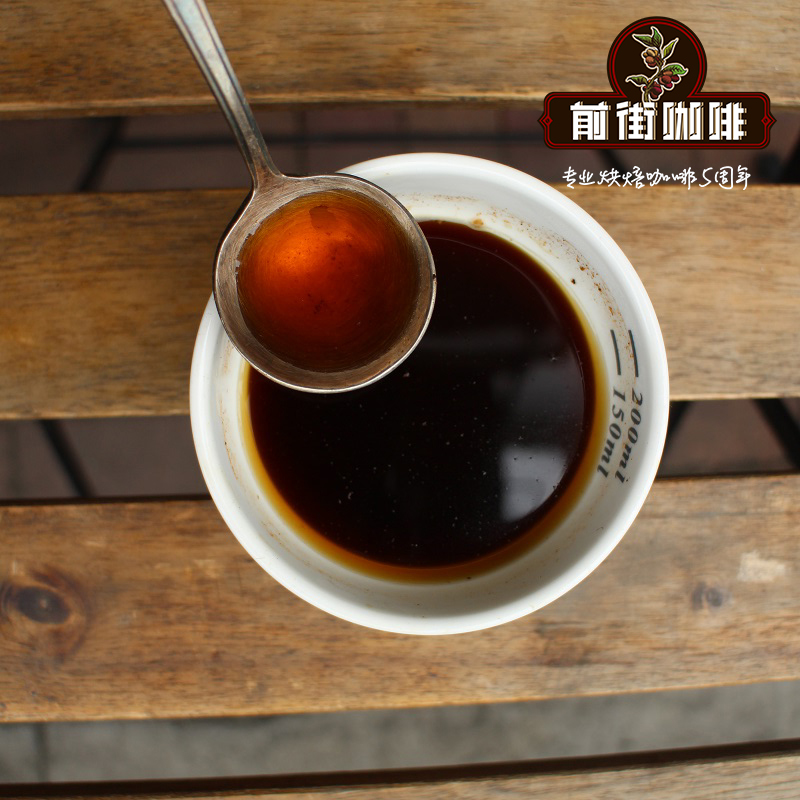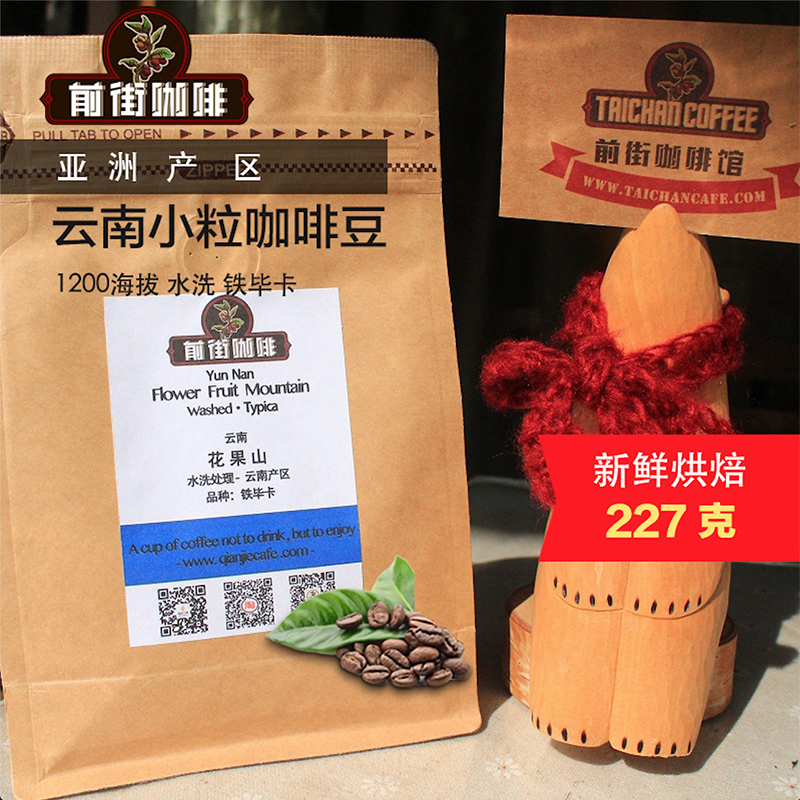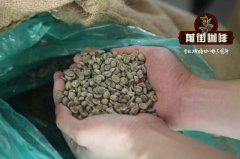How much is Yunnan Baoshan coffee per jin? What are the characteristics of Yunnan beans in Qianjie coffee?

Professional coffee knowledge exchange more coffee bean information please follow the coffee workshop (Wechat official account cafe_style)
A good cup of coffee should be brewed, coffee color: clean, pure, clear and transparent; coffee aroma: pure miscellaneous, not too much disgust; coffee taste: bitter, easy to taste, sweet and unastringent, the heaviest is a cup of coffee from hot to cold, the flavor is many changes, and like, is a good cup of coffee.
Coffee cultivation in Yunnan is mainly distributed in Lincang, Baoshan, Pu'er and Dehong, where there are natural resources of low latitude, high altitude and large temperature difference between day and night, which makes Yunnan a golden growing area for producing Arabica coffee with high quality.
Baoshan City, located in the west of Yunnan Province, is also the largest coffee growing area in China, with an average annual temperature of 21.3C, annual sunshine hours of 2334.5 hours, annual rainfall of 721.51-100mm, active accumulated temperature greater than or equal to 10 ℃ of 7800 degrees, and basically frost-free throughout the year. Planting has a long history and rich cultivation experience, which has been planted for more than 50 years.
The important period of Coffee formation in Yunnan
The first stage: in the 1880s, the Qing government was forced to sign a treaty with France to end the Sino-French war and opened Mengzi (Mengzi County, Honghe Prefecture) as a trade port. In 1889, Mengzi customs switch opened the prelude to the exchange between the southwest border and the outside world, and foreign businessmen gathered and foreign firms came one after another.
The second stage: in 1902, a French missionary named Tian Deneng brought coffee from Vietnam to grow coffee in a mountain village called Zhu Kula in Binchuan County, Dali, Yunnan Province. Today, the offspring of that batch of coffee are still alive, and the ancient coffee forest tells the story of a hundred years in the morning dew and sunset.
The third stage: in 1952, experts from Yunnan Academy of Agricultural Sciences distributed 80kg coffee seeds to farmers in Lujiangba, Baoshan, and then guided planting on a large scale a few years later, which led to the coffee trees swaying along the Yunnan-Burma Road. Coffee cultivation in Yunnan has developed rapidly due to the huge demand for supply from the Soviet Union.
The fourth stage: in 1988, Nestl é set up a joint venture in China and began to support the development of the local coffee industry in Yunnan by starting a coffee planting project. Yunnan coffee rose again. Since 1992, Nestl é has established the Coffee Agriculture Department to guide and study the improvement and cultivation of coffee in Yunnan, and to buy coffee at the price of the spot market in the United States. Up to now, not only coffee giants such as Nestl é, Maxwell, Kraft and Starbucks are engaged in coffee business in Yunnan, local coffee enterprises are also gradually growing.
Baoshan small-grain coffee was rated as first-class coffee in the London market in the late 1950s, won the laudatory name of "Lujiang No.1", and was recognized as "the top coffee in the country" at the National Coffee Conference in 1980. In 1987, the technology president of the Swiss Nestle Coffee Company drank Baoshan small grains of coffee and praised it: "this is the best coffee I have ever had in China." In December 2010, the General Administration of quality Supervision, Inspection and Quarantine decided to protect the products of National Geographic indications for Baoshan small Coffee.
Qianjie Coffee also came to Yunnan and started our own coffee cultivation. The coffee seedlings cultivated in the nursery bed last year have now grown to 50 centimeters, and this year they can be transplanted to suitable mountains to continue to grow. In the near future, we will have our own coffee to drink.
Qianjie coffee suggests that you can brew it with water of about 89 degrees and extract it in three stages for about two minutes.
Imported cantaloupe, caramel and brown sugar are very sweet and balanced as a whole.

Purchase link: https://item.taobao.com/item.htm?spm=a1z10.1-c-s.w4004-15673140431.22.6c322b277A0MdG&id=535615170690
Important Notice :
前街咖啡 FrontStreet Coffee has moved to new addredd:
FrontStreet Coffee Address: 315,Donghua East Road,GuangZhou
Tel:020 38364473
- Prev

The Story of Starbucks Fengwu Xiangyun Coffee the characteristics of Yunnan coffee beans Yunnan small grain coffee flavor
Professional coffee knowledge exchange more coffee bean information please follow the coffee workshop (Wechat official account cafe_style) Yunnan is now China's largest coffee producing area, Starbucks, Nestl é and other large coffee enterprises have smelled its great potential. The history can be traced back to 1892. More than 100 years ago, French missionary Father Tian Deneng planted the first place in Zhu Kula Village, Binchuan County, Dali City.
- Next

May the price of Starbucks coffee go up? Starbucks' fourth quarter earnings are up, shares are up, salad
Starbucks' fourth-quarter earnings rose according to Starbucks' financial results for the third quarter of 2018, its global same-store sales grew by only 1%, while same-store sales in China fell by 2%. Operating profit margins in China and the Asia-Pacific region fell 7.6%, the first decline in nine years. In pre-market trading on Friday, Starbucks beat analysts' expectations for fourth-quarter results for fiscal 2018.
Related
- Can I make coffee a second time in an Italian hand-brewed mocha pot? Why can't coffee be brewed several times like tea leaves?
- Hand-brewed coffee flows with a knife and a tornado. How to brew it? What is the proportion of grinding water and water temperature divided into?
- What is the difference between Indonesian Sumatra Mantinin coffee and gold Mantinin? How to distinguish between real and fake golden Mantelin coffee?
- What does bypass mean in coffee? Why can hand-brewed coffee and water make it better?
- Unexpected! Ruixing Telunsu lattes use a smoothie machine to foam milk?!
- % Arabia's first store in Henan opens into the village?! Netizen: Thought it was P's
- Does an authentic standard mocha coffee recipe use chocolate sauce or powder? Mocha Latte/Dirty Coffee/Salty Mocha Coffee Recipe Share!
- What is the difference between Vietnam egg coffee and Norway egg coffee? Hand-brewed single product coffee filter paper filter cloth filter flat solution!
- What is the difference between sun-cured and honey-treated coffee? What are the differences in the flavor characteristics of sun-honey coffee?
- How to make Italian latte! How much milk does a standard latte use/what should the ratio of coffee to milk be?

